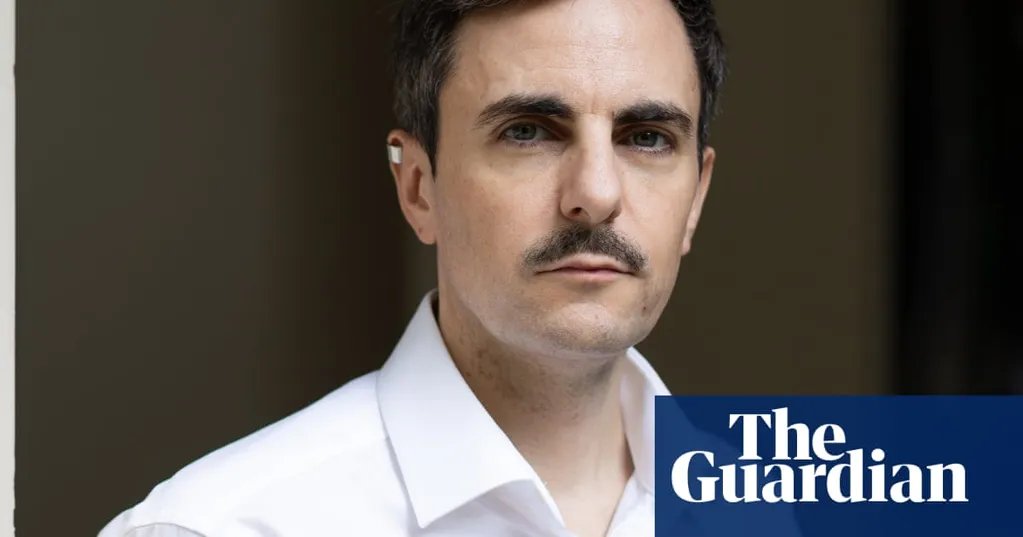If things had turned out differently, Tom Dolphin would now be a Labour MP, sitting on the government's backbenches and supporting Wes Streeting, the health secretary.
Instead he is the newly elected chair of the British Medical Association, the UK's main doctors union. Its almost 55,000 members, who are resident doctors in England, gave the government a huge headache this week by voting to strike for up to six months in pursuit of a 29% pay rise, starting with a five-day walkout from 25-30 July.
In his first interview this week, Dolphin staunchly defended that 29% figure and said that strikes may go on for a very long time. Despite his Labour background he does not look set to be a pushover for a government desperate to avoid more hospital picket lines.
"They didn't even shortlist me," says Dolphin, a consultant anaesthetist, reflecting on his application to Labour to be a candidate in last year's general election.
He had relevant experience for a career on the green benches. He had acted as the agent for Dawn Butler, the Labour MP for Brent East, at the 2017, 2019 and 2024 general elections. He had chaired Butler's constituency Labour party. And he had also chaired the BMA's resident doctors committee in 2010-12, during a fractious period caused by Andrew Lansley's ill-fated NHS shake-up.
How did he feel when Labour didn't select him? "I was disappointed because it would have been a good opportunity to do good in the world. But at the same time I wasn't terribly surprised because there were a large number of people applying who were extremely well qualified to be MPs who had spent a lot more time in the Labour party putting their time in."
That he had only joined Labour in 2012 and, unlike others, had never been a councillor may have counted against him, he thinks. But he explains that before 2012 he devoted his time and political energy to the BMA. "So I'm not surprised," he adds philosophically.
"My politics are to the left; that's not a secret". Which politicians does he most admire? "I admire Barack Obama because of the way he mobilised from a position of being basically nowhere really in the Democratic party to mobilising a huge movement that took him to the White House.
"And having seen her up close and seen the values she lives her life by and the effort she puts into things, I think Dawn Butler, my own MP, is a great MP."
That said, he is keen to stress that he is no Labour lackey. "Sometimes people draw a connection between the Labour party stuff I've done in the past and say 'the BMA is a trade union'. But the BMA is nonpartisan. It's not part of the TUC and we don't provide donations to parties.
"The role I'm in now, it's an apolitical role - a nonpartisan role I should say. As in, I don't have any political affiliation as [the BMA's] chair of council."
Who is the previously low-profile Dolphin? Most of the 47-year-old's clinical work is as part of a team at St Mary's hospital in west London that does trauma surgery: "A fair amount of stabbings, occasional shootings, assaults [and] falls from height."
His new role means he will step down as the chair of the local negotiating committee that represents his NHS trust's 2,000 doctors of all levels in discussions on terms and conditions.
His hinterland? "I go to the cinema a lot. I don't have a lot of time to do other things. I did skydiving. The BMA has expanded to fill most of my time. I enjoy dinner with friends,[especially]friends I know will not talk about medicine the whole time."
He is married, with a husband. He grew up in Essex. His father was a paramedic; his mother a primary school teacher.
Dolphin is a firm supporter of trans rights. In 2020 he warned that trans people were "being subjected to a moral panic" akin to that previously experienced by the gay community.
He opposed the ban on puberty blockers and sparked controversy within the BMA last year when he co-authored a motion that led the union to decide to undertake a "critique" of Dr Hilary Cass's landmark review of the care of gender-questioning under-18s in England. The review, which has prompted strong criticism from many doctors, remains unfinished.
After 44 days of strikes in 2023 and 2024 that hugely disrupted NHS services, Streeting gave junior doctors - since renamed resident doctors - a 22% pay rise for 2023-24 and 2024-25. Now the same medics want another 29%, or 26% if the minister's 5.4% award for this year is taken into account - only this time public support seems to be ebbing away.
With new strikes looming, what lessons does Dolphin draw from that campaign; that strikes succeed? "That being united and showing solidarity is a powerful thing that can even out the imbalance in power between you and your employer. If people stick together and show a united front, that's powerful in terms of sorting out problems."
Dolphin, Streeting's would-be colleague turned adversary, is in this for the long haul.
